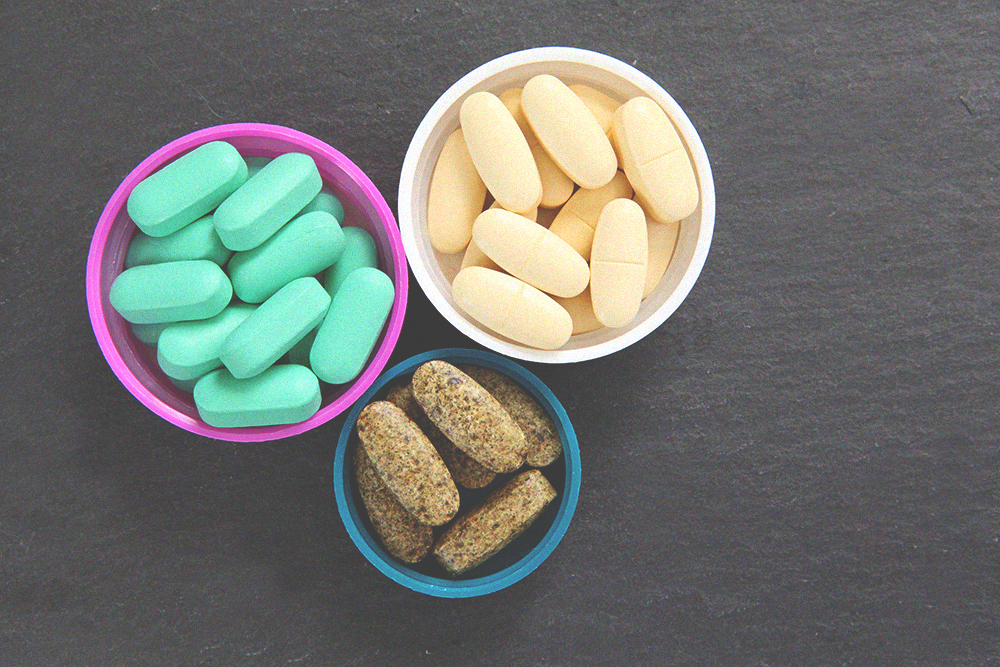While real food is always the way to go, there are certain times when nutrition supplements are absolutely necessary for your health. Here are 3 tips for choosing your best supplement.
BY: DIANNA SINNI DILLON, RDN, LD
No supplement should ever replace a healthy eating plan.
Food first, always.
However, there are specific instances and stages of life where food is simply not enough to meet your nutrient needs alone, and supplementation can become an important part of your integrative nutrition practice. Wound healing, cancer, autoimmune disease, hormonal imbalances, pregnancy, children, and healthy aging are among a few reasons why micronutrient supplementation may be beneficial to enhance and balance a healthful, whole food lifestyle.
But where do you begin? The supplement aisle can be overwhelming and how do you know what to look for?
Here are a few tips for choosing the best vitamin and mineral supplements to complement your lifestyle and micronutrient needs:
1. Know what you need and how much.
Shopping for micronutrient supplements should not be a free-for-all! Refrain from going to the store (either in person or online) not knowing what you’re looking for and certainly don’t self-diagnose. Lab tests are not always necessary, but can be a helpful tool to indicate areas where supplementation may be most beneficial (such as iron or B12 for anemia, vitamin D and calcium for bone health).
Some micronutrient supplementation may only be needed short-term; not all supplements are needed on a lifelong basis. Dosages will also vary by individual need and should be followed as some micronutrients can have adverse effects including toxicity or interference with medication. Working with a qualified health professional, such as a dietitian or nutritionally-trained pharmacist or physician, is highly recommended to determine the specificity of your micronutrient needs.
2. Start out small and simple.
With regards to dosage and the number of ingredients, adult formulations will provide super high dosages and oftentimes aren’t any more beneficial to our body than a child’s dosage. Start out with the lowest recommended dosage first and increase as needed and tolerated. Additionally, look for supplements without added fillers, colors, or unnecessary ingredients. Be weary of the antioxidant blends, ‘mix into water’ packets, or energy drink forms, as many may not fulfill the RDA (Recommended Daily Allowance) or be easily absorbed, and may have unnecessary extra ingredients.
3. Always choose quality.
Think of micronutrient supplementation as an investment for your health. Look for forms of nutrients that are best absorbed and utilized by the body – if you aren’t sure what is best, always talk to a qualified health practitioner! Choose supplements with quality assurance verification by leading organization NSF International or with proof of good manufacturing practices (cGMP). Don’t just choose a product for it’s logo, price or marketing…do your due diligence and research before you buy to determine if you’re really getting what is advertised.
A good place to learn more about supplements is the National Institute of Health Office of Dietary Supplements or the Linus Pauling Institute from Oregon State University.
And most importantly, remember to keep eating real food!
Just because you are taking a daily multivitamin doesn’t mean you should slack off at meal times. Supplements do not replace a varied, balanced eating pattern. Build your micronutrient regimen around a healthy diet full of whole grains, fruit, vegetables, nuts/seeds, and lean meats. This is the best, and universally recommended way, to take in the most efficient forms of nutrients. If you aren’t sure if your meals are well balanced or providing enough nutrients to meet your needs, meet with a registered dietitian. You might even find out supplements aren’t even needed!
Dianna Sinni Dillon, RDN, LD is a Registered Dietitian based in Kansas City, MO with a passion for all things whole grain, green, and homegrown. She focuses on empowering and inspiring others to take charge of their wellness through simple plant-based recipes and science-powered advice.

